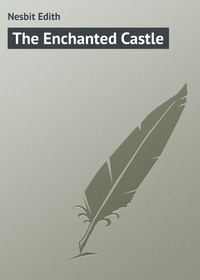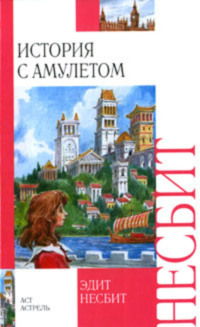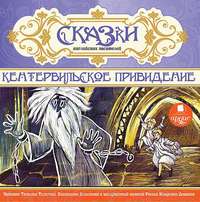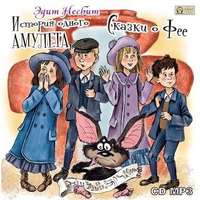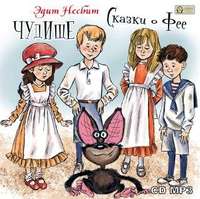
"Neither, sir, but a gift you'll never have – perseverance – and the best luck a man ever had in this world."
There was something in his voice that silenced me, and all chaff of the other fellows failed to draw him further.
The queer thing about it was that when we congratulated Miss Forster, she blushed and smiled and dimpled, for all the world as though she were in love with him, and had been in love with him all the time. Upon my word, I think she had. Women are strange creatures.
We were all asked to the wedding. In Brixham every one who was anybody knew everybody else who was any one. My sisters were, I truly believe, more interested in the trousseau than the bride herself, and I was to be best man. The coming marriage was much canvassed at afternoon tea-tables, and at our little Club over the saddler's, and the question was always asked: "Does she care for him?"
I used to ask that question myself in the early days of their engagement, but after a certain evening in August I never asked it again. I was coming home from the Club through the churchyard. Our church is on a thyme-grown hill, and the turf about it is so thick and soft that one's footsteps are noiseless.
I made no sound as I vaulted the low lichened wall, and threaded my way between the tombstones. It was at the same instant that I heard John Charrington's voice, and saw Her. May was sitting on a low flat gravestone, her face turned towards the full splendour of the western sun. Its expression ended, at once and for ever, any question of love for him; it was transfigured to a beauty I should not have believed possible, even to that beautiful little face.
John lay at her feet, and it was his voice that broke the stillness of the golden August evening.
"My dear, my dear, I believe I should come back from the dead if you wanted me!"
I coughed at once to indicate my presence, and passed on into the shadow fully enlightened.
The wedding was to be early in September. Two days before I had to run up to town on business. The train was late, of course, for we are on the South-Eastern, and as I stood grumbling with my watch in my hand, whom should I see but John Charrington and May Forster. They were walking up and down the unfrequented end of the platform, arm in arm, looking into each other's eyes, careless of the sympathetic interest of the porters.
Of course I knew better than to hesitate a moment before burying myself in the booking-office, and it was not till the train drew up at the platform, that I obtrusively passed the pair with my Gladstone, and took the corner in a first-class smoking-carriage. I did this with as good an air of not seeing them as I could assume. I pride myself on my discretion, but if John were travelling alone I wanted his company. I had it.
"Hullo, old man," came his cheery voice as he swung his bag into my carriage; "here's luck; I was expecting a dull journey!"
"Where are you off to?" I asked, discretion still bidding me turn my eyes away, though I saw, without looking, that hers were red-rimmed.
"To old Branbridge's," he answered, shutting the door and leaning out for a last word with his sweetheart.
"Oh, I wish you wouldn't go, John," she was saying in a low, earnest voice. "I feel certain something will happen."
"Do you think I should let anything happen to keep me, and the day after to-morrow our wedding-day?"
"Don't go," she answered, with a pleading intensity which would have sent my Gladstone on to the platform and me after it. But she wasn't speaking to me. John Charrington was made differently; he rarely changed his opinions, never his resolutions.
He only stroked the little ungloved hands that lay on the carriage door.
"I must, May. The old boy's been awfully good to me, and now he's dying I must go and see him, but I shall come home in time for – " the rest of the parting was lost in a whisper and in the rattling lurch of the starting train.
"You're sure to come?" she spoke as the train moved.
"Nothing shall keep me," he answered; and we steamed out. After he had seen the last of the little figure on the platform he leaned back in his corner and kept silence for a minute.
When he spoke it was to explain to me that his godfather, whose heir he was, lay dying at Peasmarsh Place, some fifty miles away, and had sent for John, and John had felt bound to go.
"I shall be surely back to-morrow," he said, "or, if not, the day after, in heaps of time. Thank Heaven, one hasn't to get up in the middle of the night to get married nowadays!"
"And suppose Mr. Branbridge dies?"
"Alive or dead I mean to be married on Thursday!" John answered, lighting a cigar and unfolding the Times.
At Peasmarsh station we said "good-bye," and he got out, and I saw him ride off; I went on to London, where I stayed the night.
When I got home the next afternoon, a very wet one, by the way, my sister greeted me with —
"Where's Mr. Charrington?"
"Goodness knows," I answered testily. Every man, since Cain, has resented that kind of question.
"I thought you might have heard from him," she went on, "as you're to give him away to-morrow."
"Isn't he back?" I asked, for I had confidently expected to find him at home.
"No, Geoffrey," – my sister Fanny always had a way of jumping to conclusions, especially such conclusions as were least favourable to her fellow-creatures – "he has not returned, and, what is more, you may depend upon it he won't. You mark my words, there'll be no wedding to-morrow."
My sister Fanny has a power of annoying me which no other human being possesses.
"You mark my words," I retorted with asperity, "you had better give up making such a thundering idiot of yourself. There'll be more wedding to-morrow than ever you'll take the first part in." A prophecy which, by the way, came true.
But though I could snarl confidently to my sister, I did not feel so comfortable when, late that night, I, standing on the doorstep of John's house, heard that he had not returned. I went home gloomily through the rain. Next morning brought a brilliant blue sky, gold sun, and all such softness of air and beauty of cloud as go to make up a perfect day. I woke with a vague feeling of having gone to bed anxious, and of being rather averse to facing that anxiety in the light of full wakefulness.
But with my shaving-water came a note from John which relieved my mind and sent me up to the Forsters' with a light heart.
May was in the garden. I saw her blue gown through the hollyhocks as the lodge gates swung to behind me. So I did not go up to the house, but turned aside down the turfed path.
"He's written to you too," she said, without preliminary greeting, when I reached her side.
"Yes, I'm to meet him at the station at three, and come straight on to the church."
Her face looked pale, but there was a brightness in her eyes, and a tender quiver about the mouth that spoke of renewed happiness.
"Mr. Branbridge begged him so to stay another night that he had not the heart to refuse," she went on. "He is so kind, but I wish he hadn't stayed."
I was at the station at half-past two. I felt rather annoyed with John. It seemed a sort of slight to the beautiful girl who loved him, that he should come as it were out of breath, and with the dust of travel upon him, to take her hand, which some of us would have given the best years of our lives to take.
But when the three o'clock train glided in, and glided out again having brought no passengers to our little station, I was more than annoyed. There was no other train for thirty-five minutes; I calculated that, with much hurry, we might just get to the church in time for the ceremony; but, oh, what a fool to miss that first train! What other man could have done it?
That thirty-five minutes seemed a year, as I wandered round the station reading the advertisements and the time-tables, and the company's bye-laws, and getting more and more angry with John Charrington. This confidence in his own power of getting everything he wanted the minute he wanted it was leading him too far. I hate waiting. Every one does, but I believe I hate it more than any one else. The three thirty-five was late, of course.
I ground my pipe between my teeth and stamped with impatience as I watched the signals. Click. The signal went down. Five minutes later I flung myself into the carriage that I had brought for John.
"Drive to the church!" I said, as some one shut the door. "Mr. Charrington hasn't come by this train."
Anxiety now replaced anger. What had become of the man? Could he have been taken suddenly ill? I had never known him have a day's illness in his life. And even so he might have telegraphed. Some awful accident must have happened to him. The thought that he had played her false never – no, not for a moment – entered my head. Yes, something terrible had happened to him, and on me lay the task of telling his bride. I almost wished the carriage would upset and break my head so that some one else might tell her, not I, who – but that's nothing to do with his story.
It was five minutes to four as we drew up at the churchyard gate. A double row of eager on-lookers lined the path from lychgate to porch. I sprang from the carriage and passed up between them. Our gardener had a good front place near the door. I stopped.
"Are they waiting still, Byles?" I asked, simply to gain time, for of course I knew they were by the waiting crowd's attentive attitude.
"Waiting, sir? No, no, sir; why, it must be over by now."
"Over! Then Mr. Charrington's come?"
"To the minute, sir; must have missed you somehow, and, I say, sir," lowering his voice, "I never see Mr. John the least bit so afore, but my opinion is he's been drinking pretty free. His clothes was all dusty and his face like a sheet. I tell you I didn't like the looks of him at all, and the folks inside are saying all sorts of things. You'll see, something's gone very wrong with Mr. John, and he's tried liquor. He looked like a ghost, and in he went with his eyes straight before him, with never a look or a word for none of us; him that was always such a gentleman!"
I had never heard Byles make so long a speech. The crowd in the churchyard were talking in whispers and getting ready rice and slippers to throw at the bride and bridegroom. The ringers were ready with their hands on the ropes to ring out the merry peal as the bride and bridegroom should come out.
A murmur from the church announced them; out they came. Byles was right. John Charrington did not look himself. There was dust on his coat, his hair was disarranged. He seemed to have been in some row, for there was a black mark above his eyebrow. He was deathly pale. But his pallor was not greater than that of the bride, who might have been carved in ivory – dress, veil, orange blossoms, face and all.
As they passed out the ringers stooped – there were six of them – and then, on the ears expecting the gay wedding peal, came the slow tolling of the passing bell.
A thrill of horror at so foolish a jest from the ringers passed through us all. But the ringers themselves dropped the ropes and fled like rabbits out into the sunlight. The bride shuddered, and grey shadows came about her mouth, but the bridegroom led her on down the path where the people stood with the handfuls of rice; but the handfuls were never thrown, and the wedding-bells never rang. In vain the ringers were urged to remedy their mistake: they protested with many whispered expletives that they would see themselves further first.
In a hush like the hush in the chamber of death the bridal pair passed into their carriage and its door slammed behind them.
Then the tongues were loosed. A babel of anger, wonder, conjecture from the guests and the spectators.
"If I'd seen his condition, sir," said old Forster to me as we drove off, "I would have stretched him on the floor of the church, sir, by Heaven I would, before I'd have let him marry my daughter!"
Then he put his head out of the window.
"Drive like hell," he cried to the coachman; "don't spare the horses."
He was obeyed. We passed the bride's carriage. I forebore to look at it, and old Forster turned his head away and swore. We reached home before it.
We stood in the hall doorway, in the blazing afternoon sun, and in about half a minute we heard wheels crunching the gravel. When the carriage stopped in front of the steps old Forster and I ran down.
"Great Heaven, the carriage is empty! And yet – "
I had the door open in a minute, and this is what I saw —
No sign of John Charrington; and of May, his wife, only a huddled heap of white satin lying half on the floor of the carriage and half on the seat.
"I drove straight here, sir," said the coachman, as the bride's father lifted her out; "and I'll swear no one got out of the carriage."
We carried her into the house in her bridal dress and drew back her veil. I saw her face. Shall I ever forget it? White, white and drawn with agony and horror, bearing such a look of terror as I have never seen since except in dreams. And her hair, her radiant blonde hair, I tell you it was white like snow.
As we stood, her father and I, half mad with the horror and mystery of it, a boy came up the avenue – a telegraph boy. They brought the orange envelope to me. I tore it open.
"Mr. Charrington was thrown from the dogcart on his way to the station at half-past one. Killed on the spot!"
And he was married to May Forster in our parish church at half-past three, in presence of half the parish.
"I shall be married, dead or alive!"
What had passed in that carriage on the homeward drive? No one knows – no one will ever know. Oh, May! oh, my dear!
Before a week was over they laid her beside her husband in our little churchyard on the thyme-covered hill – the churchyard where they had kept their love-trysts.
Thus was accomplished John Charrington's wedding.
UNCLE ABRAHAM'S ROMANCE
"No, my dear," my Uncle Abraham answered me, "no – nothing romantic ever happened to me – unless – but no: that wasn't romantic either – "
I was. To me, I being eighteen, romance was the world. My Uncle Abraham was old and lame. I followed the gaze of his faded eyes, and my own rested on a miniature that hung at his elbow-chair's right hand, a portrait of a woman, whose loveliness even the miniature-painter's art had been powerless to disguise – a woman with large lustrous eyes and perfect oval face.
I rose to look at it. I had looked at it a hundred times. Often enough in my baby days I had asked, "Who's that, uncle?" always receiving the same answer: "A lady who died long ago, my dear."
As I looked again at the picture, I asked, "Was she like this?"
"Who?"
"Your – your romance!"
Uncle Abraham looked hard at me. "Yes," he said at last. "Very – very like."
I sat down on the floor by him. "Won't you tell me about her?"
"There's nothing to tell," he said. "I think it was fancy, mostly, and folly; but it's the realest thing in my long life, my dear."
A long pause. I kept silence. "Hurry no man's cattle" is a good motto, especially with old people.
"I remember," he said in the dreamy tone always promising so well to the ear that a story delighteth – "I remember, when I was a young man, I was very lonely indeed. I never had a sweetheart. I was always lame, my dear, from quite a boy; and the girls used to laugh at me."
He sighed. Presently he went on —
"And so I got into the way of mooning off by myself in lonely places, and one of my favourite walks was up through our churchyard, which was set high on a hill in the middle of the marsh country. I liked that because I never met any one there. It's all over, years ago. I was a silly lad; but I couldn't bear of a summer evening to hear a rustle and a whisper from the other side of the hedge, or maybe a kiss as I went by.
"Well, I used to go and sit all by myself in the churchyard, which was always sweet with thyme, and quite light (on account of its being so high) long after the marshes were dark. I used to watch the bats flitting about in the red light, and wonder why God didn't make every one's legs straight and strong, and wicked follies like that. But by the time the light was gone I had always worked it off, so to speak, and could go home quietly and say my prayers without any bitterness.
"Well, one hot night in August, when I had watched the sunset fade and the crescent moon grow golden, I was just stepping over the low stone wall of the churchyard when I heard a rustle behind me. I turned round, expecting it to be a rabbit or a bird. It was a woman."
He looked at the portrait. So did I.
"Yes," he said, "that was her very face. I was a bit scared and said something – I don't know what – and she laughed and said, 'Did I think she was a ghost?' and I answered back, and I stayed talking to her over the churchyard wall till 'twas quite dark, and the glowworms were out in the wet grass all along the way home.
"Next night I saw her again; and the next night and the next. Always at twilight time; and if I passed any lovers leaning on the stiles in the marshes it was nothing to me now."
Again my uncle paused. "It's very long ago," he said slowly, "and I'm an old man; but I know what youth means, and happiness, though I was always lame, and the girls used to laugh at me. I don't know how long it went on – you don't measure time in dreams – but at last your grandfather said I looked as if I had one foot in the grave, and he would be sending me to stay with our kin at Bath and take the waters. I had to go. I could not tell my father why I would rather had died than go."
"What was her name, uncle?" I asked.
"She never would tell me her name, and why should she? I had names enough in my heart to call her by. Marriage? My dear, even then I knew marriage was not for me. But I met her night after night, always in our churchyard where the yew-trees were and the lichened gravestones. It was there we always met and always parted. The last time was the night before I went away. She was very sad, and dearer than life itself. And she said —
"'If you come back before the new moon I shall meet you here just as usual. But if the new moon shines on this grave and you are not here – you will never see me again any more.'
"She laid her hand on the yellow lichened tomb against which we had been leaning. It was an old weather-worn stone, and bore on it the inscription —
'SUSANNAH KINGSNORTH, Ob. 1713.'"'I shall be here.' I said.
"'I mean it,' she said, with deep and sudden seriousness, 'it is no fancy. You will be here when the new moon shines?'"
"I promised, and after a while we parted.
"I had been with my kinsfolk at Bath nearly a month. I was to go home on the next day, when, turning over a case in the parlour, I came upon that miniature. I could not speak for a minute. At last I said, with dry tongue, and heart beating to the tune of heaven and hell —
"'Who is this?'
"'That?' said my aunt. 'Oh! she was betrothed to one of our family many years ago, but she died before the wedding. They say she was a bit of a witch. A handsome one, wasn't she?'
"I looked again at the face, the lips, the eyes of my dear and lovely love, whom I was to meet to-morrow night when the new moon shone on that tomb in our churchyard.
"'Did you say she was dead?' I asked, and I hardly knew my own voice.
"'Years and years ago! Her name's on the back and her date – '
"I took the portrait from its faded red-velvet bed, and read on the back – 'Susannah Kingsnorth, Ob. 1713.'
"That was in 1813." My uncle stopped short.
"What happened?" I asked breathlessly.
"I believe I had a fit," my uncle answered slowly; "at any rate, I was very ill."
"And you missed the new moon on the grave?"
"I missed the new moon on the grave."
"And you never saw her again?"
"I never saw her again – "
"But, uncle, do you really believe? – Can the dead? – was she – did you – "
My uncle took out his pipe and filled it.
"It's a long time ago," he said, "a many, many years. Old man's tales, my dear! Old man's tales! Don't you take any notice of them."
He lighted the pipe, puffed silently a moment or two, and then added: "But I know what youth means, and happiness, though I was lame, and the girls used to laugh at me."
THE MYSTERY OF THE SEMI-DETACHED
He was waiting for her; he had been waiting an hour and a half in a dusty suburban lane, with a row of big elms on one side and some eligible building sites on the other – and far away to the south-west the twinkling yellow lights of the Crystal Palace. It was not quite like a country lane, for it had a pavement and lamp-posts, but it was not a bad place for a meeting all the same; and farther up, towards the cemetery, it was really quite rural, and almost pretty, especially in twilight. But twilight had long deepened into night, and still he waited. He loved her, and he was engaged to be married to her, with the complete disapproval of every reasonable person who had been consulted. And this half-clandestine meeting was to-night to take the place of the grudgingly sanctioned weekly interview – because a certain rich uncle was visiting at her house, and her mother was not the woman to acknowledge to a moneyed uncle, who might "go off" any day, a match so deeply ineligible as hers with him.
So he waited for her, and the chill of an unusually severe May evening entered into his bones.
The policeman passed him with but a surly response to his "Good night." The bicyclists went by him like grey ghosts with fog-horns; and it was nearly ten o'clock, and she had not come.
He shrugged his shoulders and turned towards his lodgings. His road led him by her house – desirable, commodious, semi-detached – and he walked slowly as he neared it. She might, even now, be coming out. But she was not. There was no sign of movement about the house, no sign of life, no lights even in the windows. And her people were not early people.
He paused by the gate, wondering.
Then he noticed that the front door was open – wide open – and the street lamp shone a little way into the dark hall. There was something about all this that did not please him – that scared him a little, indeed. The house had a gloomy and deserted air. It was obviously impossible that it harboured a rich uncle. The old man must have left early. In which case —
He walked up the path of patent-glazed tiles, and listened. No sign of life. He passed into the hall. There was no light anywhere. Where was everybody, and why was the front door open? There was no one in the drawing-room, the dining-room and the study (nine feet by seven) were equally blank. Every one was out, evidently. But the unpleasant sense that he was, perhaps, not the first casual visitor to walk through that open door impelled him to look through the house before he went away and closed it after him. So he went upstairs, and at the door of the first bedroom he came to he struck a wax match, as he had done in the sitting-rooms. Even as he did so he felt that he was not alone. And he was prepared to see something; but for what he saw he was not prepared. For what he saw lay on the bed, in a white loose gown – and it was his sweetheart, and its throat was cut from ear to ear. He doesn't know what happened then, nor how he got downstairs and into the street; but he got out somehow, and the policeman found him in a fit, under the lamp-post at the corner of the street. He couldn't speak when they picked him up, and he passed the night in the police-cells, because the policeman had seen plenty of drunken men before, but never one in a fit.
The next morning he was better, though still very white and shaky. But the tale he told the magistrate was convincing, and they sent a couple of constables with him to her house.
There was no crowd about it as he had fancied there would be, and the blinds were not down.
As he stood, dazed, in front of the door, it opened, and she came out.
He held on to the door-post for support.
"She's all right, you see," said the constable, who had found him under the lamp. "I told you you was drunk, but you would know best – "
When he was alone with her he told her – not all – for that would not bear telling – but how he had come into the commodious semi-detached, and how he had found the door open and the lights out, and that he had been into that long back room facing the stairs, and had seen something – in even trying to hint at which he turned sick and broke down and had to have brandy given him.


